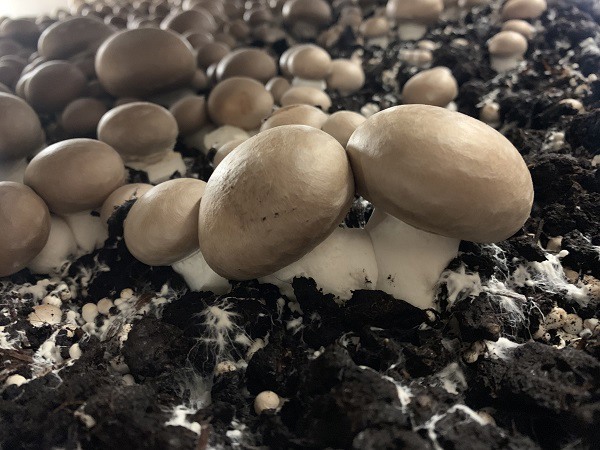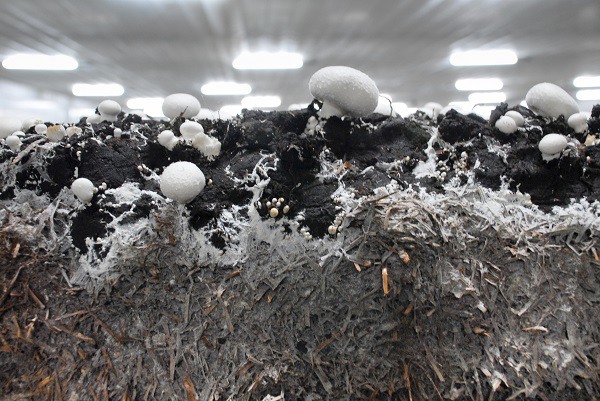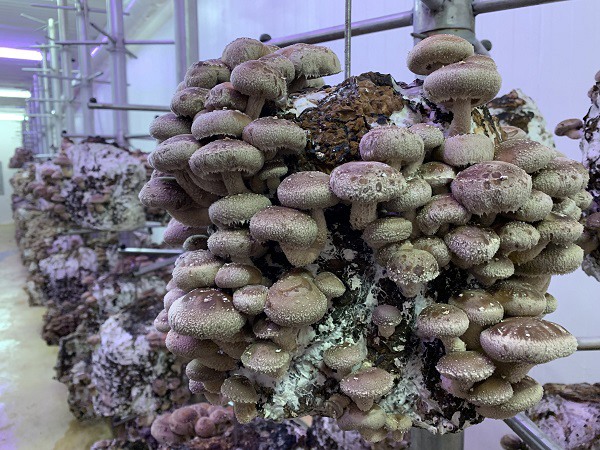At the beginning of October, the members of the Bund Deutscher Champignon- und Kulturpilzanbauer (BDC) e.V. met for their annual conference in Berlin. About 130 participants growing cultivated mushrooms exchanged views on current developments in the industry. Sponsors as well as suppliers from the Netherlands and Poland were present as well. Laura Lafuente, Managing Director of the German Vegetable Growers' Association and the BDC, spoke to us about the mood within the industry and shared why mushroom prices will rise in the coming year.

Laura Lafuente
More than half from domestic growers
"The mood among mushroom growers had been fundamentally good," Lafuente says. "Finally meeting again in person, exchanging ideas. That's what's been missing. There was good news as well. In 2020, 58% of mushrooms came from German cultivation, after all. For comparison: In the entire vegetable cultivation is about 30%. So the regional share is much higher for mushrooms than for other fresh vegetables. The advantage with mushrooms is that they can be grown and harvested year-round."
While 75,000 tons of mushrooms were sold in 2019, around 81,000 tons of mushrooms grown in Germany were already marketed in 2020. Of these, white mushrooms accounted for about 43,500 and brown mushrooms for about 37,500. The 400g packs sold best, although there are also 250g, 350g and 500g packs on the market.

The champignon is one of the most popular edible mushrooms in the world. There are brown and white mushrooms. These can be eaten raw as well. Photo: BDC.
Exploding costs
The greatest competitive pressure is being felt from the Netherlands and Poland, where production costs are much lower, Lafuente said, "Costs are exploding right now. The high energy prices are getting to everyone. Mushrooms are extremely energy-intensive in production. But packaging, substrates, films, etc. are also becoming more and more expensive. Something simply has to happen with these prices. Pretty much everyone I've talked to is unsure what the next season will be like."
100% harvesting by hand
Since there is simply no mechanical harvesting for mushrooms yet, the industry relies on harvesting by hand. "When the minimum wage will become €12, mushroom growers will not know how to manage that," says Lafuente. "Because in addition to energy and material costs, wages in particular will put pressure on the industry, as they are the highest cost within mushroom production. Mushrooms will definitely be more expensive next year." It will also be more difficult for farms to invest in better machinery, as they will be busy maintaining their operations.

Without energy, mushroom crops don't grow year-round. Heating in winter, cooling in summer, heat to disinfect the facilities are the most important segments in energy consumption. But energy is expensive. Photo: BDC.
Mood is ambivalent
Even though sales figures have been very good in the last year and a half, the mood is quite ambivalent: "The mushroom is a product that can be used to enhance a lot of things, such as salads and pasta dishes, etc. But they cannot be obtained cheaply. The mushroom was definitely a winner in the Corona era. However, if the costs didn't skyrocket so tremendously, the industry might be more excited about this facet."
The shortage of harvesting personnel, in particular, is a concern for the industry, she said. "Mushrooms rely on harvesting by hand; there's not a lot of leeway in that. If there are not enough harvesters, growers may end up composting early. This must be avoided at all costs, otherwise it would be nothing but a waste of food and resources."

Exotic mushrooms in production. Here: the shiitake, a particularly delicate edible mushroom with a very aromatic, slightly garlicky flavor. In East Asia, it is also called the "king of mushrooms." Photo: BDC.
Mushroom market in flux
"Whether King Trumpet mushrooms, shiitake or pom pom mushrooms, the demand for exotics is there, although s still relatively low. Exotic mushrooms are still niche products. A large part of the consumers can unfortunately not yet do much with these, and these products still appear only infrequently in the food retail trade as well. However, that can change in the future, because the amount of vegetarians, looking for healthy meat substitutes is growing constantly. There mushrooms are a perfect fit for them."
Champignons are particularly successful. "Brown mushrooms and organic mushrooms have sold very well during the lockdowns. Since restaurants have reopened, demand for organic goods has again stagnated. There was some surprise in the industry about this development., but it's definitely related to the Corona shopping patterns."
For more information:
Laura Lafuente
Fachgruppe Gemüsebau im BOG Bund Deutscher Champignon- und Kulturpilzanbauer (BDC) e.V.
Bund Deutscher Champignon- und Kulturpilzanbauer (BDC) e.V.
Claire-Waldoff-Straße 7
10117 Berlin
Tel.: +49 30-20 00 65-26
Email: [email protected]
Web: www.der-champignon.de and www.bdc-pilze.de
